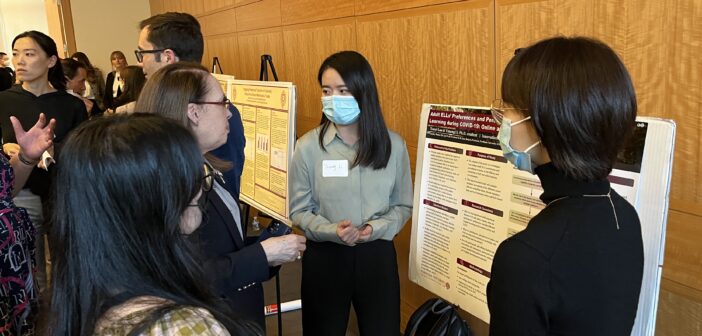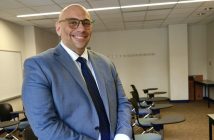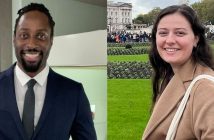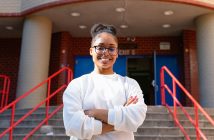“As a doctoral student who came into the program online during the pandemic, I thought it would be wonderful to bring our doctoral programs together,” said Tricia Clarke, a member of GSE’s doctoral planning committee who proposed the event. “Having an outlet where we could share our research and talk about our work out loud has moved us from the classroom to a wider space where we could see the impact of our work and learn from each other.”

Fordham faculty and administrators at a panel
The all-day event featured presentations and panels co-designed by students and faculty. In one panel, GSE alumni spoke with students about how they can use their degrees outside of academia. In another panel, faculty outlined best practices for students who want to publish their scholarly research. The event, which was sponsored by the GSE Dean’s Office, also featured presentations from Amy Sarika Persaud, Ph.D., a psychologist in Fordham’s Counseling and Psychological Services who spoke about how students can prioritize their mental health during school, and keynote speaker Alfredo Artiles, Ph.D., a professor at the Stanford University Graduate School of Education who reflected on his own journey and offered advice for the next generation of educators.
In years past, GSE has hosted research celebrations, but this spring marked the first time that it also hosted a retreat for students within the school’s five doctoral programs, said Annie George-Puskar, Ph.D., assistant professor and chair of GSE’s doctoral planning committee.
“Academia can be isolating, so it was great to see our students get excited about research, celebrate their work, and feel inspired by one another,” said George-Puskar. “Our committee hopes that this event continues to grow so that we can celebrate the important research that our students contribute to the field of education.”
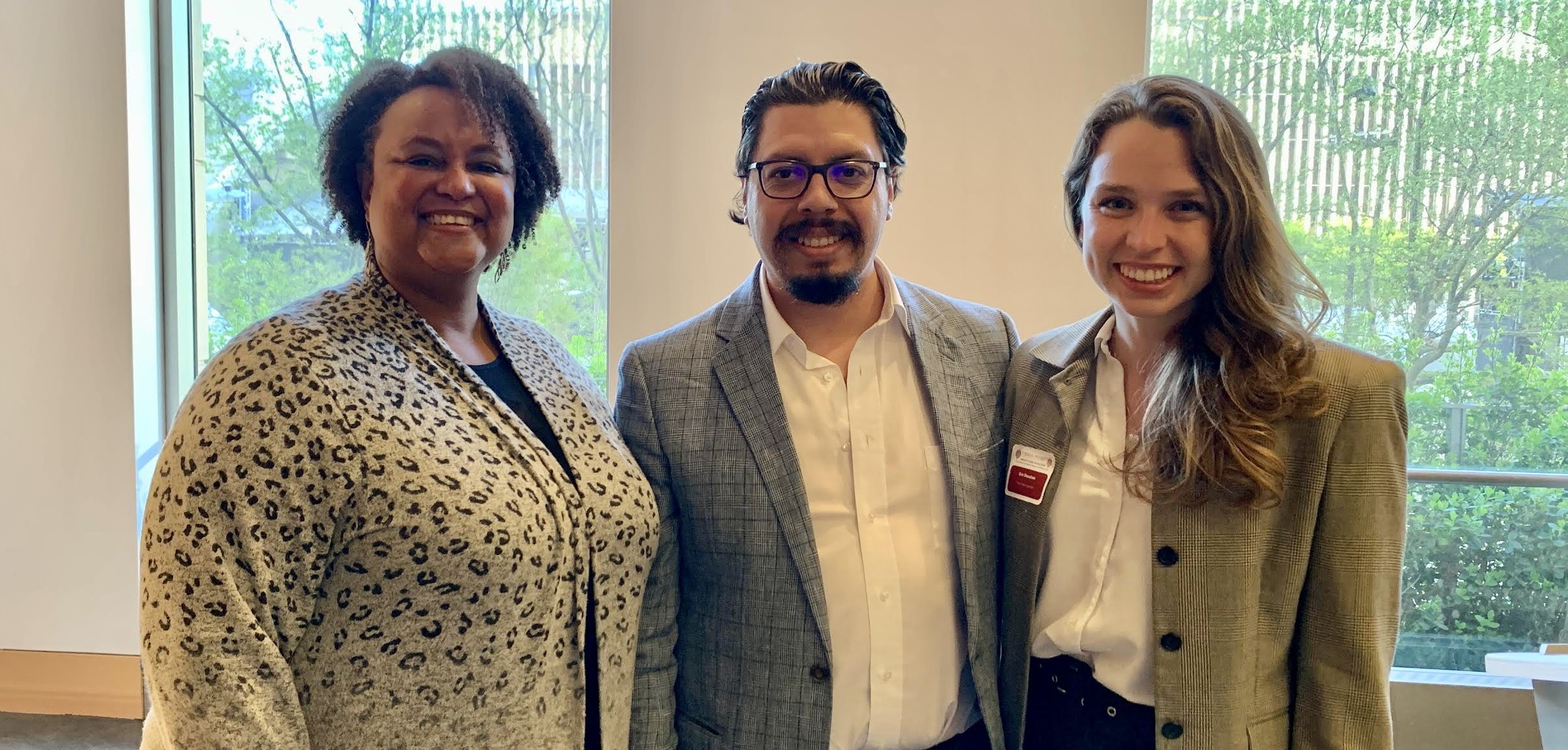
Student co-planners in the doctoral planning committee: Tricia Clarke, Jesús Aceves Loza, and Erin Shanahan. Unphotographed are Bailey Kaufman and Sara Skluzacek, fellow doctoral students in the committee.
Perceptions of Miscommunication in Multilingual Families
At the end of the day, students at different stages presented their scholarly work, including first-year doctoral students at the early stages of their research and students scheduled to defend their dissertations by the end of the year.
Tricia Clarke, a student in the innovation in curriculum and instruction program, is examining the perception of miscommunication between staff in early child education programs and multilingual students and their families in collaboration with her classmates and faculty mentor Diane Rodríguez, Ph.D.
Clarke and fellow doctoral students Lovell Quiroz and Robert Niewiadomski are currently surveying teachers, administrators, and parents in a study called “Channels of Communication in Multilingual Communities: Insights From an Early Childhood Education Program.”
“Our main question is, how do parents, teachers, and administrators perceive the communication process among multiple stakeholders of an early childhood program in a rural multilingual community?” said Clarke, who is also an adjunct faculty member at Fordham and Lehman College.
What Do Educators Think About Bilingual Learning?
Natalie Madison Dronne, a student in the contemporary learning and interdisciplinary research program, presented her dissertation, “From Monolingual to Bilingual: Teacher Languages and A New Dual Language Program.” Madison Dronne’s project focuses on the Brooklyn school where she works as a full-time teacher, which serves many non-native English learners who have never participated in a bilingual program. In 2017, her school was mandated to establish a bilingual program. For her dissertation, Madison Dronne decided to interview teachers and administrators at her school about their beliefs on language learning for children.
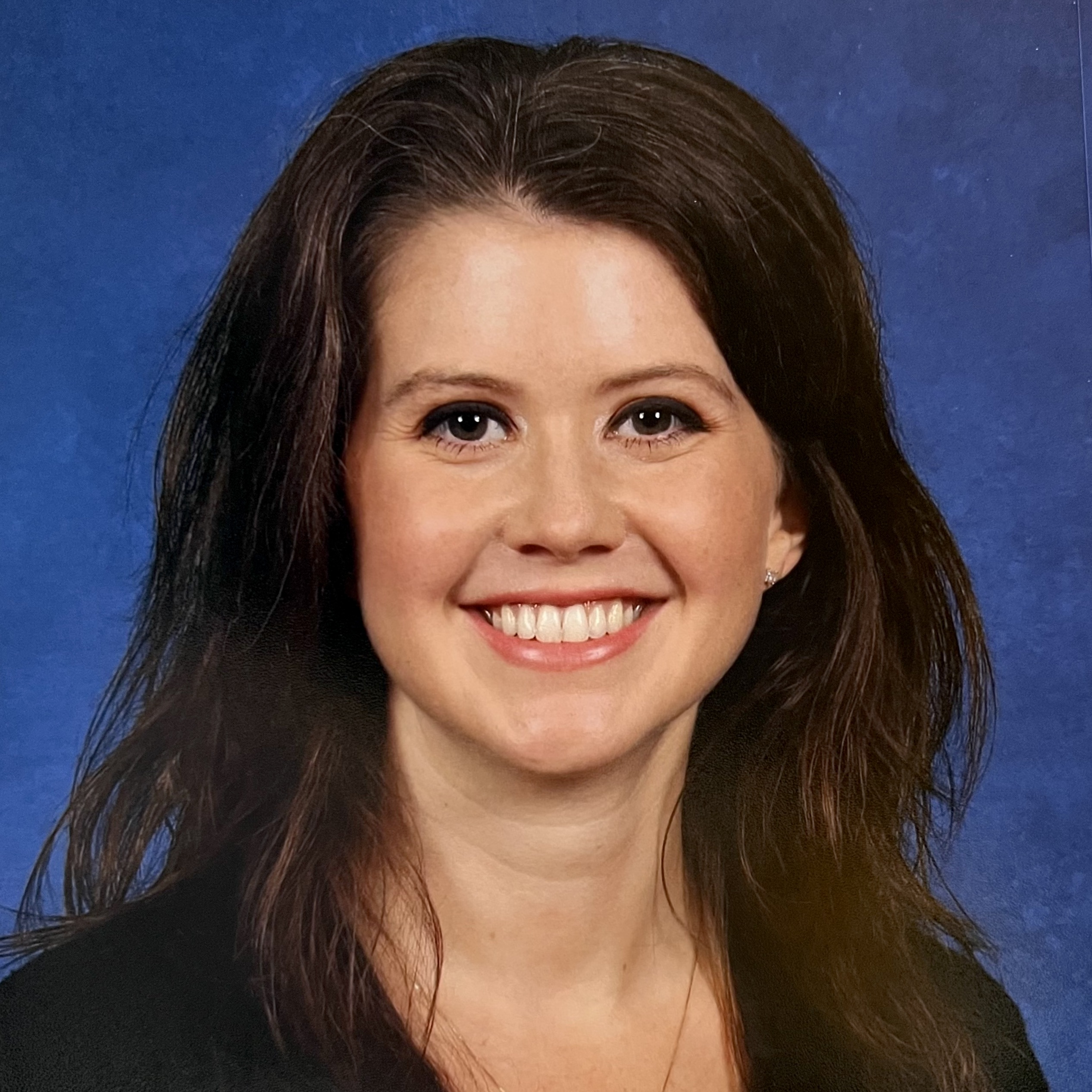
Natalie Madison Dronne
“My study captures this moment in time where for the first time, instruction is switching from monolingual to bilingual in some classrooms. I’m examining how educators understand this new program, whether or not they support it, and how that’s connected to program sustainability,” Madison Dronne said.
One of her top research takeaways was that educators’ stated beliefs can be different from their actions—not because they are being disingenuous, but because of the rules, regulations, and money issues that prevent them from accomplishing their original goals.
“All these bilingual programs were mandated in New York State because English language learners were not making progress. And so at a time when all these bilingual programs were mandated to be opened and are now being hopefully sustained, it’s important to understand the ideological landscapes at these schools for the success of these programs,” Madison Dronne said.
Building Crisis Ready School Leaders
Daren Khairule, a student in the educational leadership, administration, and policy program, is researching how schools can be better prepared for large-scale crises like Hurricane Katrina, the Sandy Hook Elementary School shooting, and the COVID-19 pandemic.
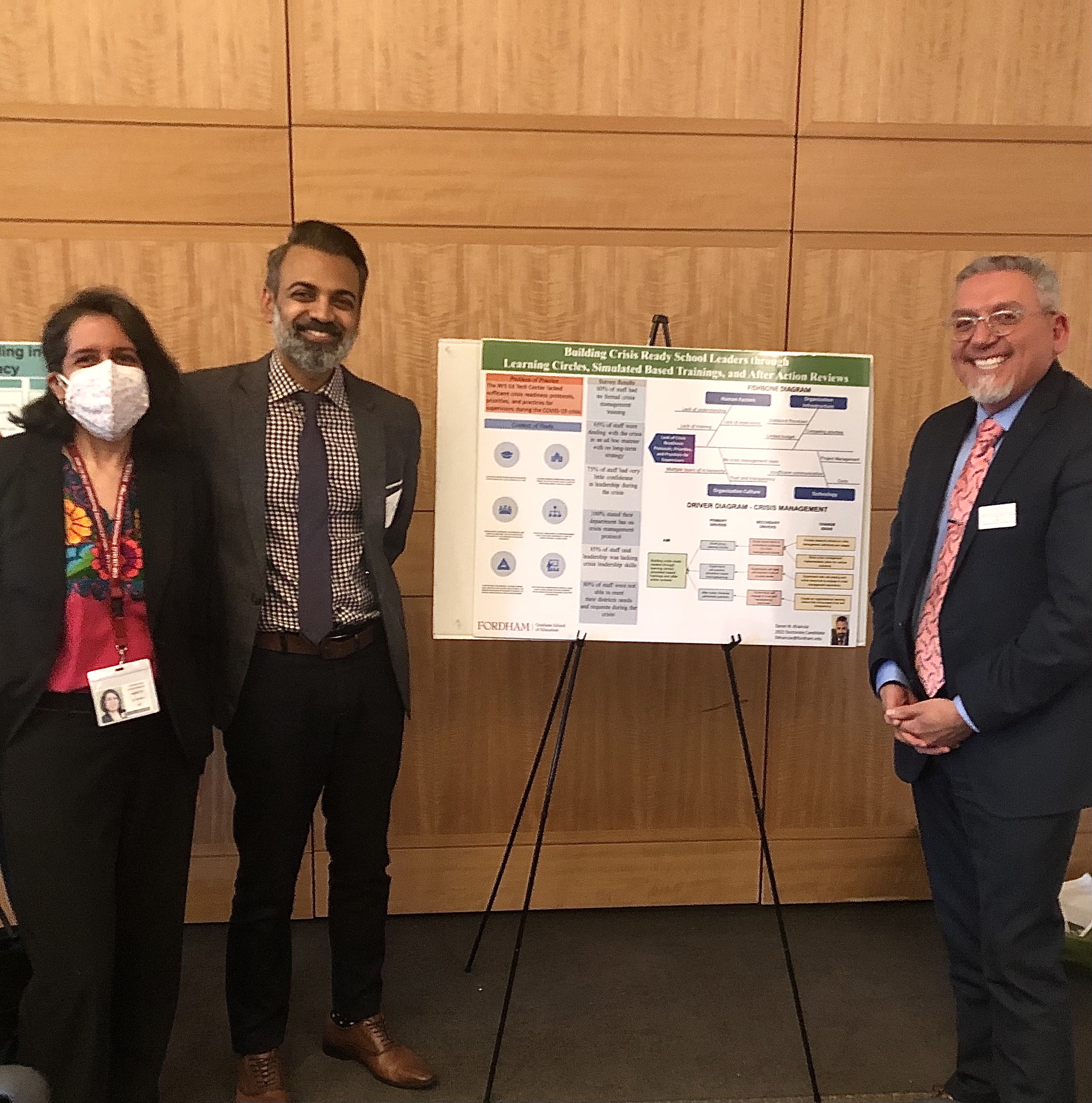
Daren Khairule with his faculty adviser, Elizabeth Gil, and GSE Dean Alvarado
“While working with school districts, we realized that we didn’t have a succinct crisis management plan and team that could have guided us through challenges during the pandemic,” said Khairule, who also serves as a coordinator of instructional technology at BOCES of New York State, a program that provides educational programs, services, and professional development to school districts within the state. “I felt that our organization needed to develop a more succinct and robust methodology for building a crisis management team going forward.”
In his project, “Building Crisis Ready Leaders through Learning Circles, Simulated Based Training, and After Action Reviews,” Khairule researched crisis management plans from not only educational institutions, but also the business, sports, and military sectors. There isn’t a silver bullet for crisis management in any industry, he said, but there are best practices that can be lifted from those industries and incorporated into schools. Among them are learning circles (group discussions led by an expert where educators share their knowledge and discuss best practices), simulated based trainings (role-playing workshops where educators study a specific crisis and figure out how they could’ve handled it better), and after action reviews (workshops where teams unpack what worked and what didn’t to help refine an organization’s response to future crises).
“Looking at those different industries helped me realize that, as an educational institution, we’re not leveraging proven strategies that are helping other industries manage crises,” Khairule said. “If we can use some of the strengths that these other industries offer, then we can be better change agents and crisis management leaders during difficult times.”
